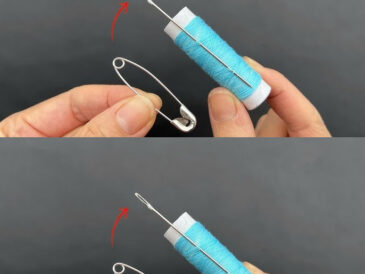Shrimp is often called the “fruit of the sea” — succulent, versatile, and quick to cook. But when it’s kissed by flame, soaked in fragrant herbs, and marinated in bright citrus and spice, shrimp ascends into something transcendent. Herb Marinated Grilled Shrimp, with its smoky char, juicy texture, and zesty herbal brightness, is more than just a dish — it’s a celebration of flavor, simplicity, and culinary balance.
Whether you’re a backyard grill enthusiast, a seafood lover searching for the next best way to prepare shrimp, or a healthy eater looking for a low-carb, high-protein delight, this dish checks every box. In this article, we’ll dive deep into the art and science of making herb marinated grilled shrimp, breaking down the ingredients, cooking methods, flavor chemistry, and serving ideas — all the way to alternative marinades and dietary adaptations.
Table of Contents
- Introduction to Grilled Shrimp and Its Cultural Significance
- The Role of Each Ingredient in Flavor and Function
- The Science of Marinating: How It Transforms Shrimp
- Grilling Techniques for Perfect Shrimp Every Time
- Step-by-Step Preparation Walkthrough
- Serving and Pairing Suggestions
- Variations and Creative Twists
- Health Benefits and Nutritional Profile
- Common Mistakes and How to Avoid Them
- Final Thoughts and Chef’s Tips
1. Introduction to Grilled Shrimp and Its Cultural Significance
Grilled shrimp is a dish that transcends borders. Found in Mediterranean, Caribbean, South American, and Southeast Asian cuisines, grilled shrimp reflects the cultural diversity of coastal regions where seafood is plentiful and open-fire cooking is traditional.
Herb marinated grilled shrimp brings together the Mediterranean love for olive oil and herbs, the Latin passion for citrus and spice, and the universally adored smoky flavors from grilling. It’s a dish that’s light yet indulgent, rustic yet refined, simple yet complex.
Shrimp’s relatively neutral flavor makes it a perfect canvas for a variety of seasonings, and grilling enhances its natural sweetness while adding depth and a touch of smoke — a combination that’s irresistible.
2. The Role of Each Ingredient in Flavor and Function
Let’s break down the ingredients in our recipe, not just in terms of what they are, but why they’re there and what they contribute.
Shrimp (1 ½ lbs, large, peeled and deveined)
- Function: The star protein.
- Flavor: Sweet, briny, meaty.
- Why Large Shrimp? They hold up better on the grill and remain juicy. Smaller shrimp can overcook too quickly.
Olive Oil (3 tbsp)
- Function: Fat for marination, helps prevent sticking on the grill.
- Flavor: Slightly fruity, rich — adds mouthfeel and helps distribute other seasonings.
Lemon Juice (2 tbsp)
- Function: Acid for marination.
- Flavor: Bright, tangy — tenderizes shrimp and balances richness.
Garlic (2 cloves, minced)
- Function: Aromatic.
- Flavor: Pungent, earthy, savory — infuses shrimp with deep flavor.
Fresh Parsley (1 tbsp, chopped)
- Function: Herbaceous note.
- Flavor: Fresh, slightly peppery — balances the richness of the oil and meatiness of the shrimp.
Cilantro (1 tbsp, chopped)
- Function: Herb with distinct citrusy notes.
- Flavor: Bright, slightly tangy, and fresh.
Smoked Paprika (1 tsp)
- Function: Adds depth and smokiness.
- Flavor: Earthy, subtly spicy — enhances grilled flavor even before shrimp hits the fire.
Onion Powder (½ tsp)
- Function: Base flavor.
- Flavor: Sweet, savory — deepens the marinade’s flavor profile.
Cayenne Pepper (¼ tsp, optional)
- Function: Heat component.
- Flavor: Spicy — adds a subtle kick, adjustable to taste.
Salt and Pepper (to taste)
- Function: Fundamental seasoning.
- Flavor: Enhances all the other ingredients.
3. The Science of Marinating: How It Transforms Shrimp
Shrimp, like most seafood, is delicate and doesn’t require long marination times. In fact, over-marinating can “cook” the shrimp due to the acid (especially citrus), leading to a mushy texture. Here’s what happens during the marination process:
- Osmosis and Diffusion: Salt and lemon juice draw water out and pull flavors into the shrimp.
- Protein Denaturation: Acid and salt start to break down proteins, making the shrimp more tender.
- Fat as a Carrier: Olive oil carries fat-soluble flavor compounds (from garlic, paprika, and herbs) into the shrimp.
Ideal Marination Time: 30 minutes to 1 hour. Beyond that, the texture can become compromised.
4. Grilling Techniques for Perfect Shrimp Every Time
Prepping the Grill
- Gas Grill: Preheat to medium-high (~400°F). Clean and oil the grates.
- Charcoal Grill: Let coals burn to a steady heat and place shrimp over direct heat for maximum char.
- Grill Pan: Heat until just smoking and lightly oil to prevent sticking.
Skewering
If you’re using a traditional grill, skewers make handling shrimp easier. Soak wooden skewers in water for 30 minutes to prevent burning.
Grilling Time
- Shrimp cook quickly: 2–3 minutes per side.
- Look for:
- Pink color
- Opaque flesh
- Light char
- C-shape (not O-shaped, which means overcooked)
5. Step-by-Step Preparation Walkthrough
Let’s go through the entire recipe in detail, emphasizing pro tips at every stage.
Click page 2 for more




